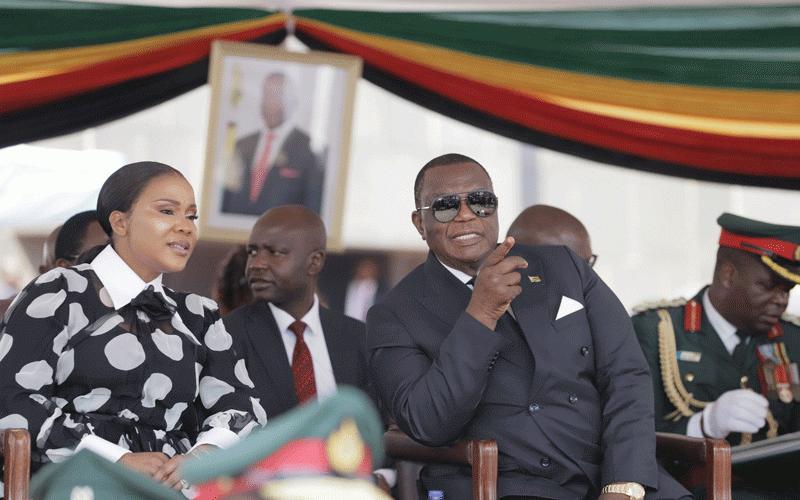Africa-Press – Zimbabwe. THE second Monday and Tuesday of the month of August remain sacrosanct on Zimbabwe’s calendar because of the historical weight they carry.
Mondays are set aside to commemorate the courage of the many sons and daughters of Zimbabwe who took arms to prosecute the liberation struggle to dislodge the heartless Ian Smith colonial regime.
The second Tuesday of every month of August bears similar historical weight as it commemorates and cherishes the Zimbabwe Defence Forces — a critical pillar in as much as the defence of Zimbabwe’s territorial integrity, sovereignty and security are concerned.
These days are not ritualistic — they are critical as an embodiment of history, notably with regards to Zimbabwe’s attainment of statehood in 1980.
However, 45 years after Zimbabwe attained independence, we need to genuinely take stock of our independence by asking a pertinent question: What was really the objective of the liberation struggle?
If we genuinely interrogate that question, we will likely reach the collective consensus that there are still some gaps insofar as the fulfilment of the objectives of the liberation struggle is concerned.
So glaring and scary are the remnants of the liberation struggle project that we may argue that colonialism is not over, but all over.
The core logic of the liberation struggle was never independence, as we may be made to believe — it was decolonisation.
Decolonisation as the critical outcome would have reconfigured the colonially-structured Zimbabwean State, which had choked under colonialism for a whopping 90 years.
At the tail end of the liberation struggle, the global north, under the tutelage of the British Empire and the United State, hurriedly morphed the Lancaster House Conference and, in the process, successfully hijacked the liberation project, which ultimately concealed the decolonisation agenda.
As such, the Lancaster House Conference gave birth to a never-desired outcome — independence as opposed to the total decolonisation of the Zimbabwean State.
But what does decolonisation entail?
The decolonisation project’s primary goal is ensuring radical transformation and shift from the colonial entrapments that African States had been subjugated under ever since the convening of the illegal Berlin Colonial Conference of 1884-1885, which sealed the fate of Africa and punctuated the continent as the most humiliated one.
This project extends to the dismantling of political, economic and cultural colonisation, which we have been reeling under for the past 650 years as a continent, and for the past 135 years in the case of Zimbabwe.
Given that we were given independence by the Lancaster House Conference as opposed to decolonisation, our nationalists were duped and succumbed to yet another phase — coloniality.
Coloniality aptly describes a scenario of the evolving tactics of colonisers as well as the perpetual legacies of colonialism underwritten by our economic, social, technological, cultural and political models, which for most of the time always mimic colonisers.
Decolonisation would have eliminated the anchors of colonialism from the physical, ecological and mental processes of the Zimbabwean nation and its people.
As such, the current structures of governance infrastructure of Zimbabwe, as is the case with the rest of African States, make us willing subjects of a colonially-structured State yet to transform to a liberated one.
The miseries of colonisation, which triggered the Second Chimurenga, for which we now celebrate these crucial historical days, were premised on slave labour, deprivation of rights, dignity, human worth and total elimination of the indigenous black people from any probability of benefiting from their God-endowed natural and human resources.
In several instances, the African is still deprived of these crucial materials, qualifying him as a being, to the extent that the African citizen remains, the most unhappy one on earth. He or she walks on top of a bounty of resources that do not belong to him or her.
This is not a similar case of the Arabs with their oil, Russians with their gas or the Chinese with their hydrocarbon resources.
It is, therefore, high time our liberation should transform to decolonisation. Zimbabwe should take the lead in breaking the colonial matrices of power, fully expressed by the uneven distribution of wealth, unhappiness, haves and have-nots, as well as a continued colonial system of the rich getting richer and the poor getting poorer.
The Zimbabwean State has a lot to do in decolonising the economic structure which is still a caricature of the colonial economy where many are still in ‘keeps’; abolish the colonial curriculum which celebrates white colonial supremacy in all facets, a political system which is modelled in the ill-fated Westminster model and the lingual infrastructure which does not fully embrace local languages.
The liberation project will be complete when Zimbabweans are entirely free from the colonial infrastructure whose umbilical chord is still attached to the illegal Berlin Colonial Conference.
The liberation project should also deal with the toxic project currently prevailing in Zimbabwe.
Zimbabweans are yet to depart from the binary politics of pro-this and anti-that, which was a legacy of the liberation struggle in identifying those supporting its logic and those complicity in propping up the colonial regime.
Binary characterisation is no longer a viable mechanism that should define our politics in the contemporary.
Politics should not hurt but heal our nation.
There is fundamentally something wrong with a liberation project whose outcome is instinctive hatred, contempt, enmity and disrespect among each other.
We must now start on a new leaf and complete the liberation project by decolonising the colonially entrapped Zimbabwean State.
For More News And Analysis About Zimbabwe Follow Africa-Press






